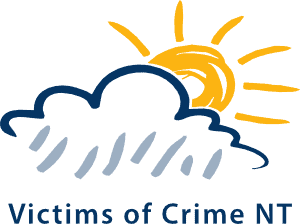For seniors
By introducing a few simple practices into your daily routine can give yourself, your family, friends and neighbours much greater peace of mind.
| Important numbers | Contact |
|---|---|
| Emergencies | 000 |
| Police assistance | 131 444 |
| Fire assistance | 132 500 |
| NT Emergency Services assistance | 08 8999 3473 |
| Crime Stoppers NT (to report suspicious behaviour) | 1800 333 000 |
| Victims of Crime NT | 1800 672 242 |
Staying safe as we get older
As you get older, you are faced with many safety obstacles, some you'll know about and have faced before, others are new or are different to your past experiences.
You may have to deal with situations or events like:
- experiencing elder abuse
- updating our home to make it safer for use to move around it
- staying safe online
- setting up alarms and monitors that can contact help if you need
- having a carer stay with us or visit us to assist us with daily activities.
myGov has some great information and tips on how to manage situations such as these.
How to stay safe
Making sure you or a senior member of the family is safe, helps with overall health and well-being.
By applying some strategies, you can ensure the safety and well-being of yourself or a senior member of the family, to live more securely and independently.
Some tips that can help you make your home safe.
- Prevent falls – install grab bars, use non-slip mats and remove tripping hazards (e.g. loose rugs).
- Ensure good lighting in all areas of the home.
- Arrange furniture to make clear pathways for easy movement in the home.
- Install smart home devices like security cameras, smart locks, and motion sensor lights.
- Install smoke and carbon-monoxide detectors and check or have them checked regularly.
- Have a fire extinguisher accessible and learn how to use it.
- Keep emergency contact numbers accessible either near phones and/or on the mobile phone.
- Have a medical alert system or wearable device that can detect falls and summon help automatically.
Some tips that can help you keep safe at home.
- Install deadbolt locks on all exterior doors.
- Ensure windows lock securely.
- Consider installing security screens on ground-level windows.
- Use a peephole or video doorbell to see who is at the door before opening it.
Some tips that can help you keep safe online.
- Learn about:
- basic internet safety, like recognising phishing emails and using strong passwords
- common scams, such as phishing, IRS impersonation, and lottery scams.
- Don't share personal information over the phone or online.
- Install antivirus software and keep updated on all devices.
- Monitor your financial statements regular for any unusual activity.
Go to our digital safety page for tips on seniors keeping safe online.
Some tips to help with your health, well-being and social support.
- Use a pill organiser to manage daily medications.
- Keep an updated list of all medications, dosages, and prescribing doctors.
- Set reminders for taking medications on time.
- Schedule regular medical appointments and keep a log of health records.
- Take part in social interaction to help with loneliness and depression, like joining community groups or senior centres.
- Do activities like puzzles, reading, and hobbies to keep the mind and body active.
- Use technology to stay in touch with family and friends, like video calling family.
- Ensure safe transportation options are available, like senior-friendly public transit, ride-sharing services, or community shuttles.
- Consider if you need in-home care or move to an assisted living facility if independent living becomes challenging.
Some tips that can help you with safeguarding your legal and financial affairs.
- Ensure wills, power of attorney, and healthcare directives are up to date.
- Store important documents in a secure but accessible place.
- Consider setting up a trusted financial advisor or family member to help manage finances.
- Review and simplify financial accounts to avoid confusion.
Find out more
Check out the links to government and non-government organisations for more information and and advice.
Accessible aged care services for Australians
Visit the Australian Government's My Aged Care website.
Aged and disability care – Top End
Visit Larrakia Nation's website.
Aged and disability care – Central Australia
Visit Tangentyere Council's website.
Aged care services NT
Visit NT Government's website.
Ageing and aged care for LGBTIQ+
Visit LGBTIQ+ Health Australia's website.
Carer gateway
Visit Australia Government's website.
Council of the Ageing NT (COTA NT)
Visit COTA NT's website.
Remote aged NT care services for First Nation peoples
Visit the Australian Government's My Aged Care website.
Safety as you get older
Visit Australian Government's myGov website.
Tech savvy seniors
Visit Telstra's website.
eSafety for seniors
Visit the eSafety Commissioner's website.
Safe and Sound Program
Safe and Found program is designed to support people living with dementia, autism or other cognitive impairment who might be at risk of becoming lost or reported as missing.
Who can help
Council of the Ageing NT (COTA NT)
Call 08 8941 1004
Larrakia Nation
Aged and Care Disability Services
Call 08 8985 6811
NT Police
Call 131 444 in non-emergencies.
In emergencies call 000

Victims of Crime NT
Free call: 1800 672 242
Darwin: 08 8941 0995
Alice Springs: 08 8952 4466
Crime Stoppers NT
Call 1800 333 000
Neighbourhood Watch NT
Call 08 8999 0847